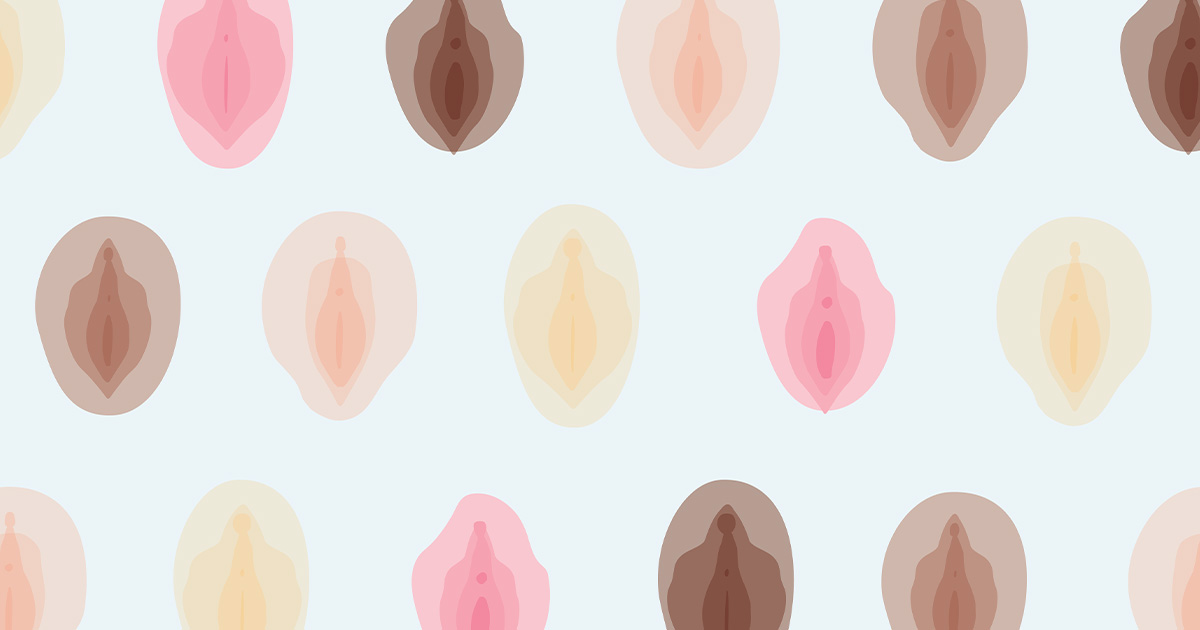
Gynecology, What's Up, Down There
What’s Up, Down There: Understanding Your Menstrual Cycle
In our latest edition of “What’s Up, Down There,” we’re exploring what to expect during the various phases of your menstrual cycle. Did you know that your menstrual cycle is more than just the main event – your period? It’s actually a series of four different phases that each play a role in your reproductive health. Getting in touch with your cycle can help you with planning for pregnancy and even detecting other health issues.
Phases of The Menstrual Cycle
A typical menstrual cycle lasts 28 days, but can vary from person to person and with age. It is marked by the first day of a period and ends with the start of the next period. It is a process through which your ovaries, uterus, and brain communicate together.
Phase 1: Menstruation (Day 1-5)

The first day of bleeding is considered the start of your menstrual cycle. This is when blood and endometrium (the lining of the uterus) are shed through the cervix and vagina. Menstruation, or your period, is your body’s way of releasing tissue it no longer needs. To prepare for pregnancy, the lining of your uterus thickens to support a nurturing environment for the fertilization of an egg. If an egg is not fertilized, your body releases this blood and tissue through the process of menstruation. Bleeding can last on average between 3-7 days, but can be longer or shorter.
While on your period it’s common to experience bloating, mood changes, breast tenderness, and skin sensitivity or breakouts. It’s a perfect time to relax and take it easy for a few days.
Phase 2: Follicular Phase (Day 1-14)

The follicular phase is the longest phase of the cycle, beginning at the start of your period and lasting through to ovulation. During this phase of the cycle, your body’s hormones communicate with your ovaries to begin growing eggs. Specifically, your brain’s pituitary gland triggers the release of a hormone called follicle-stimulating hormone (FSH). FSH is responsible for helping the ovaries to produce follicles that form eggs. Follicles are small fluid-filled sacs in the ovaries that help to grow and provide a nourishing environment for the egg. During the menstrual cycle, several follicles will start to grow, but ultimately only one (or two) will reach full maturity and release an egg. The others will be reabsorbed into your body.
It’s toward the end of this phase that estrogen levels rise, which can have an impact on your mood. During this time, you may feel a greater sense of happiness and well-being, as estrogen has been shown to reduce cortisol levels, which are linked to stress. Toward the end of the follicular phase and as you approach the ovulation phase, it’s also common to experience a natural increase in libido.
Phase 3: Ovulation (Day 14)

The ovulation phase is the shortest phase of the cycle, providing a 24-hour window for the egg to be fertilized. During this phase of the cycle, a hormone known as luteinizing hormone (LH) is released. This hormone triggers ovulation and the release of an egg. The day of ovulation can be a different for every woman, ranging anywhere from day 13-15. If you’re unsure and trying to conceive, at-home ovulation tests kits can help you determine when you are ovulating.
Phase 4: Luteal Phase (Day 15-28)

The luteal phase is the time between ovulation and the first day of your period. During this time, your body will release several hormones that are designed to help support the implantation of the egg in the uterus (the womb). In particular, a hormone known as progesterone is produced and is responsible for helping to thicken the uterine lining to support pregnancy. In the case of conception, the egg travels through the fallopian tube to the uterus where it implants. If conception does not occur, progesterone levels will drop and the thickened lining of the uterus will shed, beginning your period.
It’s during this phase that you may experience some of the more dreaded period symptoms associated with premenstrual syndrome (PMS) like irritability, mood swings, bloating, changes in sleep patterns, and changes in appetite.
Understanding your menstrual cycle can help you track the ebb and flow of your hormones and how they can impact your mood and body. If you’re experiencing irregularity in your cycle or new symptoms like heavier bleeding, it could be a sign of an underlying health condition. Booking an appointment with your Axia Women’s Health provider can help you further evaluate any changes in your cycle and how they could be impacting your health.
Similar Articles

February 5, 2026

November 10, 2025

May 7, 2025











































